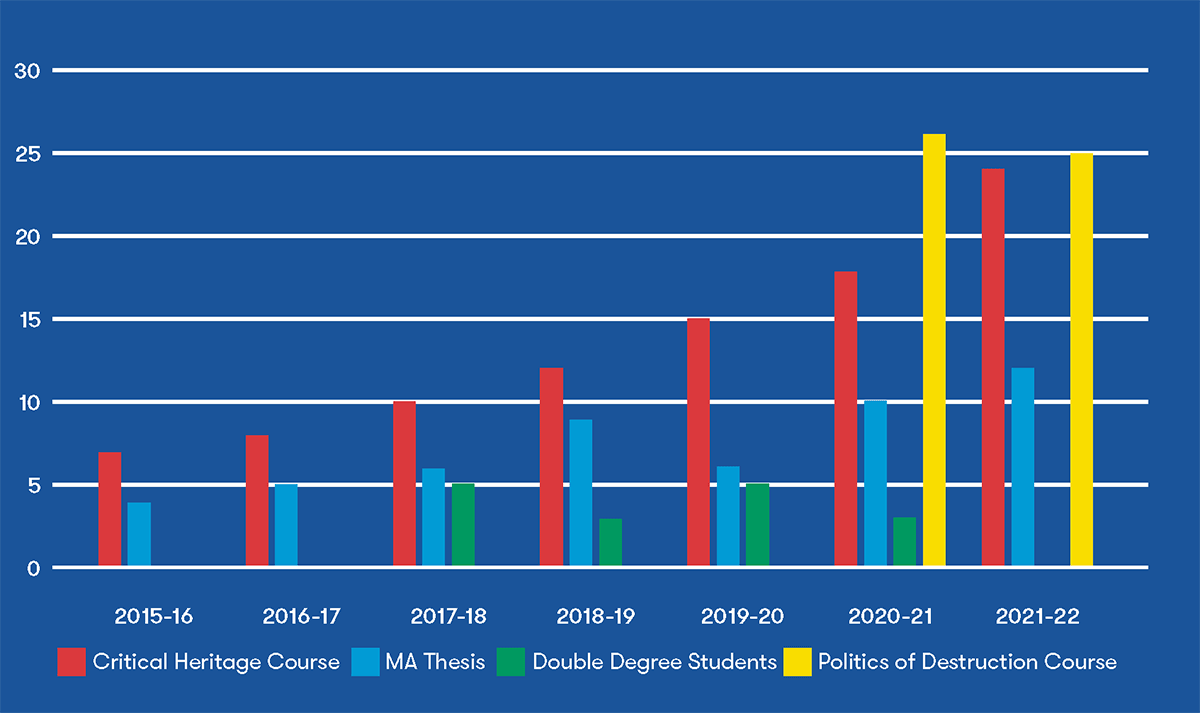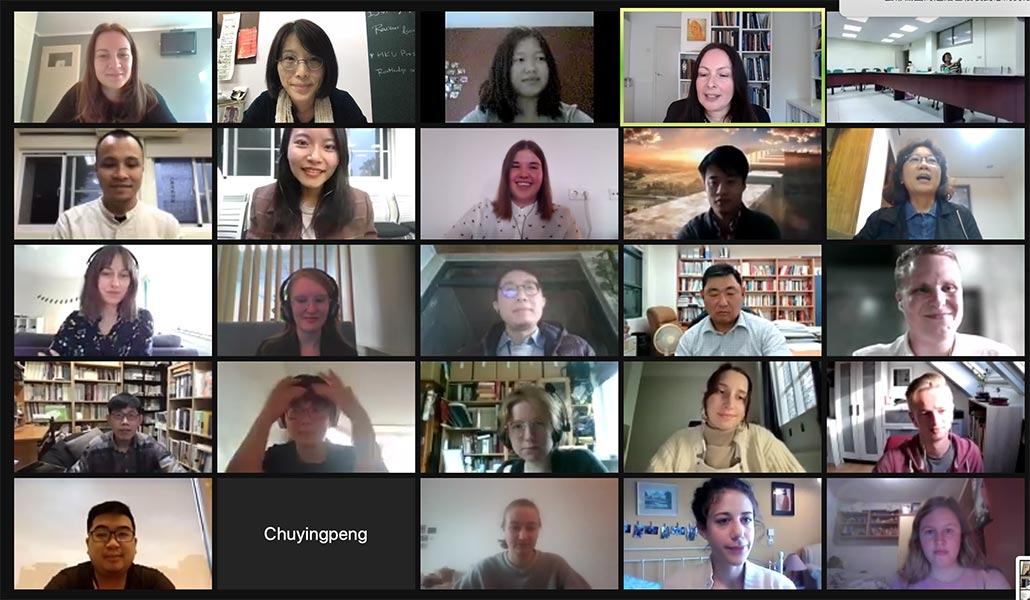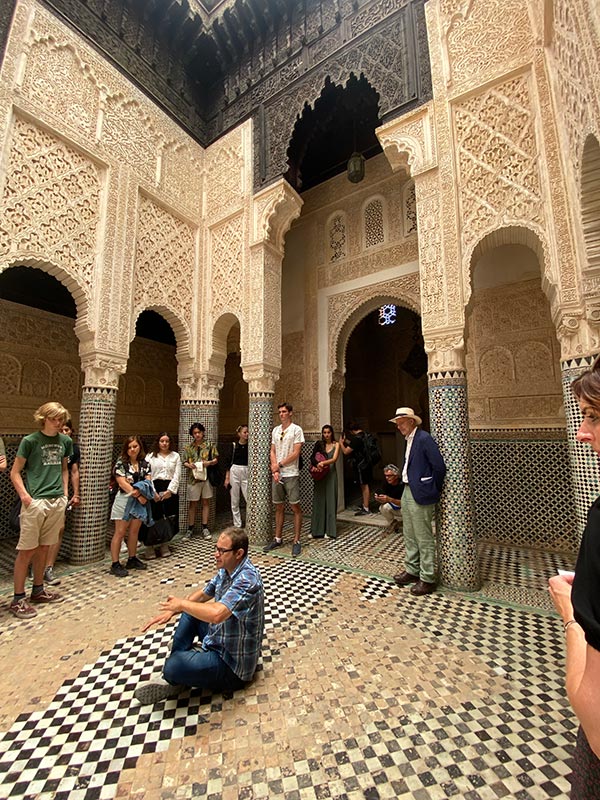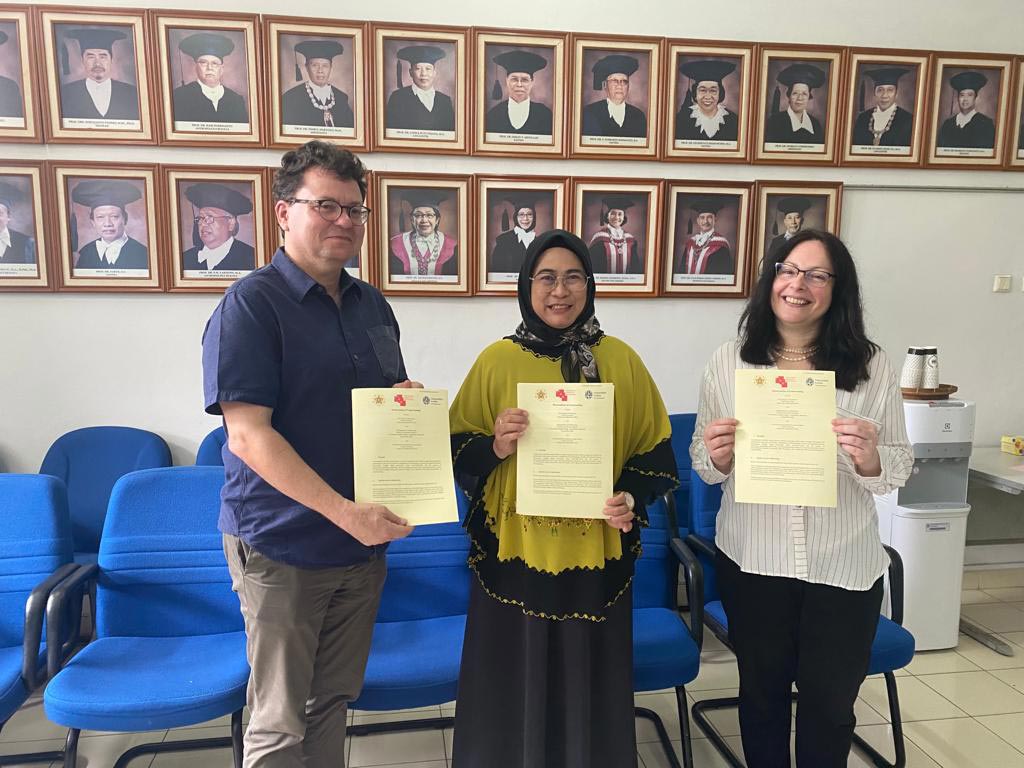The 10-year Anniversary of the Dual Degree Program ‘Critical Heritage Studies of Asia and Europe’
The international, post-graduate Dual Degree in ‘Critical Heritage Studies of Asia and Europe’ is an initiative of the International Institute for Asian Studies (IIAS), which since 2013 has been promoting the field of Critical Heritage Studies through courses, workshops, conferences, and publications.
The Dual Degree forms part of a broader ambition to decentralize the production of knowledge about Asia by establishing a platform for continuing dialogue between universities located in Asia and beyond. The present institutions involved in the Dual Degree – IIAS, Leiden University Institute for Area Studies, National Taiwan University, Yonsei University (South Korea), and Gadjah Mada University (Indonesia) − have already established a fruitful collaboration in research and teaching. Currently, talks are underway with several universities in Japan, Turkey, and North Africa.
Critical Heritage Studies of Asia and Europe
Over the last years, IIAS has been intensively engaged with the Leiden University Institute for Area Studies (LIAS) and targeted Asian partners in the development of a special master’s (and PhD) track in the field of Critical Heritage Studies. Thanks to the fruitful cooperation between all the institutes involved, the MA in Leiden, as part of the MA Asian Studies, is now combined with a parallel series of courses at a number of Asian universities, enabling students to obtain a 'dual degree' at the end of their studies.
The Dual Degree program offers selected graduate students from the participating universities the opportunity to obtain two MA degrees – one from Leiden University and one from a partner university in Asia – and a Certificate for the Dual Degree in Critical Heritage Studies of Asia and Europe, issued by IIAS.
The program prepares students to work in academic research, spatial planning, museum management, tourism industries, and heritage conservation across Europe and Asia. They study heritage as a means of rethinking relations between Asia and Europe in terms of mutual respect and exchange, and they explore the creative potential of cultural forms and practices. The process of heritage-making entails various forms of conflict over the definitions, ownership, and uses of cultural attributes. Institutional and non-institutional social actors in Asia and Europe are increasingly involved in debating the legitimacy of heritage claims as well as the need to ‘safeguard’ different expressions of heritage. Furthermore, heritage is being used as a marketable commodity for the sake of tourism.
The institutions involved in the Dual Degree program consider Asia and the Middle East as a fertile source of both theoretical and methodological insights into the highly contested area of heritage. Since colonial times, European-based concepts and technical approaches to conservation have dominated the understanding of heritage in Asia and the Middle East, in most cases through the top-down imposition of ideas and processes. It is this hegemonic discourse, usually promoted by developmentalist states in Asia and elsewhere, as well as various processes of indigenous response, that the Dual Degree program highlights. The program focuses in particular on the politics of heritage and the questions of its legitimacy. Who controls heritage? What is the role of heritage in the constructed narratives of nationalism? How is heritage being used as a cultural practice to shape discourses on nation-building and nation-branding?
Growing Student Numbers
When I took over the program in 2015, there were seven students in the first critical heritage class, which was offered only for the track History, Arts and Culture. Since 2021, the program has been open to all MA Asian Studies tracks and specializations of both 60 EC and 120 EC, including a cross-listing with the Research MA programs Asian Studies and Middle Eastern Studies. As a result, many interested graduate and post-graduate students have been able to attend all heritage-related classes offered at the Faculty of Humanities.
The global pandemic and online teaching posed a very serious challenge to the success of the program. Although in 2021-2022 all classes were offered online or in a hybrid form, the student numbers kept on growing [Fig. 2].

Fig. 2: Growing student numbers in the program ‘Critical Heritage Studies of Asia and Europe.’ (Figure courtesy of Elena Paskaleva)
Whenever possible, online information sessions were held. For example, an extremely inspiring meeting was organized with all partner universities on 22 October 2021 [Fig. 3]. For the first time, both students and staff members from Taiwan, Korea, and the Netherlands could exchange ideas about the future development of the program and acquaint themselves with the courses offered at all three partner universities. Forty-five people participated in the online meeting held via zoom. Both Leiden and NTU students presented their MA theses and discussed their ongoing work.

Fig. 3: Online information meeting about the Dual Degree program. (Photo courtesy of Elena Paskaleva)
Fieldwork Trips
Each year the students attending the Leiden MA program go on several fieldwork trips. Usually, the first trip is to the Textile Research Centre (TRC), where Dr. Gillian Vogelsang-Eastwood introduces the group to the collection and library and also gives a guest lecture on “Textile as Heritage.” Some of the heritage students – such as, for example, Francesco Montuori (class 2019-2020) – continued to work as interns for the TRC and as a result of their growing interest in research, switched to the Research MA in Asian Studies, which prepares students for a PhD. A number of heritage students regularly opt for internships at TRC.
The second fieldwork trip is to the Leiden Heritage Office, where the group is introduced to heritage practices and urban regeneration in Leiden. All students get access to the huge collection of the Leiden archive.
In 2018, the critical heritage students were invited to Morocco by the Leiden Institute in Rabat (NIMAR). Eleven students from Leiden University and 12 Museology students from Mohammed V University shared a learning experience about the complexities of heritage in Morocco. The study trip was led by an entourage of five academic experts with different disciplinary backgrounds, including Philippe Peycam (Director of IIAS), Léon Buskens (NIMAR), Willem Vogelsang (then Deputy Director of IIAS), Elena Paskaleva (assistant professor and coordinator of the Critical Heritage Studies program at Leiden University), and Paul van der Velde (then ICAS Secretary), who all actively participated in the academically stimulating and culturally enriching exchange. It was a five-day immersion in Moroccan architecture, museums, and, most importantly, food. The trip brought us in touch with the multi-faceted aspects of the cultural heritage of a country that is trying to find its own voice. The staff of NIMAR was most helpful.

Fig. 4: Leiden Students at Médersa mérinide, Salé, Marocco. (Photo courtesy of Elena Paskaleva)
New Course #1: ‘The Politics of Destruction: Targeting World Heritage’
Several new courses were introduced after 2020. Targeting world heritage sites has led to the deliberate shattering of history and national identity worldwide. Massive intentional destruction of cultural heritage has been employed in recent decades as a dogmatic tactic of ethnic cleansing and religious persecution. Although cultural heritage is legally protected, and its ruination in times of armed conflict is widely considered a war crime, most of the targeted sites have been considerably damaged and their reconstruction has become a complex political conundrum.
The MA course ‘The Politics of Destruction: Targeting World Heritage’ gives a voice to the different stakeholders engaged in reconstruction projects and provides a nuanced discussion on the political circumstances that led to the destruction of World Heritage Sites. In addition, the new course acquaints students with the legal framework prohibiting targeted destruction of heritage (e.g., The Hague Convention of 1954, The Geneva Convention Protocol of 1977, etc.) and introduces them to key concepts of critical heritage studies in the context of transnationalism, globalization, and decolonization.
New Course #2: ‘The Politics of Heritage in the Middle East’
Heritage is always political. Originally a concept coined by the nation-state, heritage has become the object of political appropriation by national and local authorities and stakeholders. Analyzing the dynamic of the various types of public, institutional, and private actors engaged in the current negotiations on heritage practice across the Middle East is the topic of a new course, entitled 'The Politics of Heritage in the Middle East’ in the Leiden Master’s program in Critical Heritage Studies.
The political and power practices in the Middle East are crucial to understanding how heritage was romanticized or defined as marginalized in the colonial context. Current attitudes towards cultural heritage can be better understood if they are situated in a historical perspective. That is why the new course offers a special focus on the ways the modern concept of cultural heritage was introduced to the Middle East during the colonial period. The first initiatives to conduct large-scale archaeological expeditions, to start collecting newly-excavated objects, and to initiate restoration campaigns led by European archaeologists, architects, and art historians set the tone for generations to come. As part of global competition among world empires for supremacy over the protection of cultural heritage, the colonial policies behind these projects can be considered an integral part of the overall restructuring of the colonized space across the Middle East.
Political independence after World War II marked the postcolonial states’ attempts to build specific national narratives and forge national identities based on the traces of powerful empires. Another trend was to promote popular religious traditions and folklore, considered to be the ‘authentic’ expressions of the Arab essence that was to define these modern societies. As a counterbalance to these discourses incorporated into state heritage practice, the new course looks at the transformative nature of cultural heritage as derived from individuals and communities who attach meaningful memories to and identify feelings towards the physical traces of their own past.
Cultural heritage – especially its materialization in objects, buildings, and sites – has become a magnet for tourists across the Middle East. While in the 19th century, tourists were fascinated by the constructed idea of an ancient cultural landscape unchanged since Biblical times, the controversial questions of authenticity have been negotiated at present by preserving the material traces of the past and by reconstructing heritage sites that have been deliberately shattered by war conflicts or looting.

Fig. 5: Signing of the MoU between Leiden University, Gadjah Mada University, and IIAS on May 10, 2023. From left to right: Philippe Peycam, Mimi Savitri, and Elena Paskaleva.
Scholarships at Leiden University
Leiden University has been extremely supportive in accommodating the needs of the Dual Degree. We are very happy with the extension of the Leiden University Excellence Scholarship (LExS) to Dual Degree students from all partner institutions. Annually, Leiden University provides a number of LExS scholarships that reduce the total tuition to the statutory tuition fee, which allows incoming Dual Degree students to study in Leiden.
In addition, all Dual Degree students receive a monthly scholarship of €500 for the duration of 10 months from the International Institute for Asian Studies (IIAS). This scholarship is arranged upon successful admission at Leiden University and all partner universities.
Certification
As far as certification is concerned, upon successful completion of the Dual Degree Program, students obtain the Leiden University MA diploma in Asian Studies. In addition to that, they obtain the master’s diploma from the partner university and a separate certificate for the Dual Degree Program in ‘Critical Heritage Studies of Asia and Europe,’ which is issued by IIAS and added to their MA diploma during the graduation ceremony.
Elena Paskaleva is Assistant Professor in Critical Heritage Studies at Leiden University and Coordinator Asian Heritages Cluster at IIAS. e.g.paskaleva@hum.leidenuniv.nl